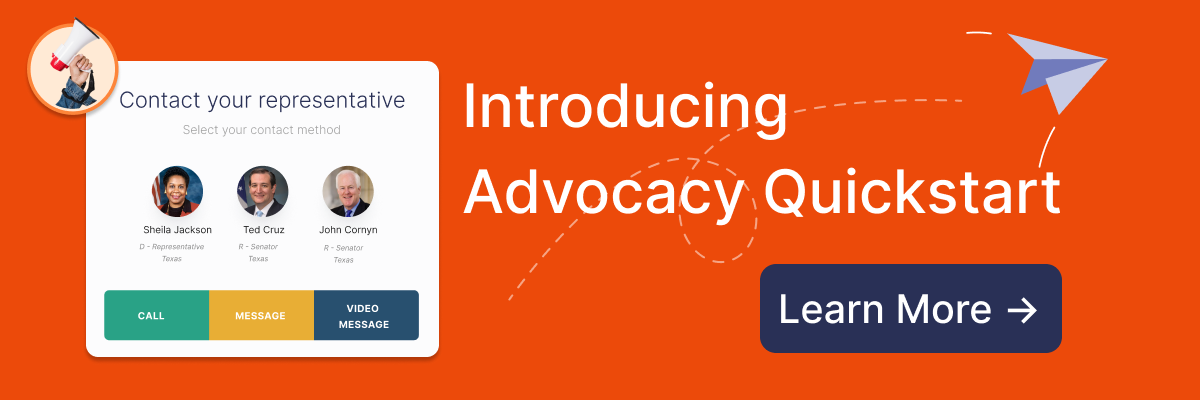Key Takeaways from the Public Affairs Council Advocacy Conference
Once again, the annual Public Affairs Council Advocacy Conference brought together not just an inspiring array of public affairs professionals, and industry leaders, but also a range of attendees with experiences from working at the American Kidney Fund and Pfizer to eBay and Instacart. The conference covered everything from the latest digital tactics to the effectiveness of old school touches like matching shirts at fly-ins, but it was also sunrise runs, pickleball, intercoastal boat trips, evening events, and a range of other activities which brought people together to share, learn, and start conversations sparked by ideas from the panels.
Offering attendees a getaway from a harsh winter, PAC held this winter event in Ft Lauderdale, FL, letting people warm up to each other. Their event featured panelists from Edelman, the Congressional Management Foundation, and Pfizer along with workshops that explored topics ranging from harnessing grasstops advocacy to the role of social media. As a leading provider of advocacy software, we attended this year’s conference and have compiled the following insights to share with you.
%20(Twitter%20Post)%20(LinkedIn%20Post)%20(LinkedIn%20Post)%20(1200%20%C3%97%20400%20px)%20(4)-2.png?width=1000&height=300&name=Copy%20of%20Copy%20of%20Copy%20of%20Stat%20linkedin%20graphic%20(Twitter%20Post)%20(Twitter%20Post)%20(LinkedIn%20Post)%20(LinkedIn%20Post)%20(1200%20%C3%97%20400%20px)%20(4)-2.png)
The Power of Storytelling
Members don’t remember statistics, they remember stories.
Throughout the event, panelists repeatedly emphasized the profound impact authentic stories can have in communicating complex issues.
Our brains are wired to process information through stories, making this form of communication especially impactful. From the written word to video, storytelling helps convey a point and motivate others to take action.
Statistics are interesting. But stories are infinitely more memorable and emotionally resonant. Ultimately emotion wins the day.
Train and Educate Your Advocates
Another theme that repeatedly surfaced was the necessity to train and educate advocates. The success of an advocacy campaign relies heavily on the knowledge and commitment of its advocates. As the American Forest & Paper Association presentation reminded us, it is important not to assume that your advocates are well-versed in the issues you are advocating for. Even highly motivated supporters may not have the same level of expertise or familiarity with the subject matter as you do. Advocates play a crucial role in advancing the cause, but they must be adequately trained and educated to be effective.
Provide them with a comprehensive overview and backstory of the issues at hand, context, and its implications. Offer them clear and encouraging guidance as to how to communicate those details to others. Provide them with templates for emails and a clear process for them to reach policymakers through email, phone, and video messaging. Reward them for taking action. Without proper training, guidance, and support, advocates will never reach their full potential in persuading decision-makers to take action.
Training can take many forms, from online courses to in-person training sessions, but the critical point is that it should be tailored to the specific needs of your advocates. Learn about them. Understand their interests and what will motivate them to support your core initiatives. Then empower them to effectively communicate your message and make a significant impact. By meeting them where they are and providing them with the necessary knowledge and tools, you will build their trust and confidence and ensure that your message is delivered with clarity and impact.
Cultivate a Sense of Exclusivity and Belonging for Advocates Joining Your Cause
Advocacy can be a powerful tool for change, but it is only as effective as the people who support it. This point was emphasized repeatedly in the eBay/REQ and American Institute of Architects presentations. Simply asking people to join your cause may not be enough to attract and retain supporters. To build a loyal base of advocates, your organization needs to create a sense of exclusivity and belonging that makes your supporters feel like they are part of something special.
Fostering a sense of community among advocates and advocacy groups offers several benefits. When advocates feel like they belong to a community that shares their values and goals, they are more likely to remain committed and active, and also more likely to feel a greater sense of accountability for contributing to the cause. In addition, a sense of belonging creates a feeling of ownership, empowering advocates to take action, lead initiatives, and recruit others to spread the word about the cause, ultimately expanding the reach and impact of the advocacy group.And a sense of belonging adds to a feeling of accountability, making advocates feel responsible for contributing to the cause.
These are some steps your organization can take to strengthen your advocates sense of community:
-
Offer exclusive content: Create content that is only available to your advocates, such as behind-the-scenes videos, early access to new information, or exclusive interviews with experts.
-
Host exclusive events: Organize events that are only open to your advocates, such as meet-and-greets with influencers or VIP receptions at conferences.
-
Provide exclusive merchandise: Offer merchandise that is only available to your advocates, such as limited edition t-shirts or other branded items.
-
Foster your community: Create opportunities for your advocates to connect with one another through online forums or in-person events.
-
Recognize your advocates: Show appreciation for your advocates by recognizing their contributions to your cause. This can be done through social media shoutouts, personalized thank-you notes, or other forms of recognition.
Create Opportunities for Engagement Year Round
Educate and communicate with your advocates before an issue reaches a fever pitch.
Advocacy requires sustained momentum to effect change, and advocates provide that momentum. When advocates are engaged they build enthusiasm and keep the movement going. However, they can also become disinterested and tune out, especially when the issues they care about fall out of the spotlight. That's why it's important to keep advocates engaged year-round, not just during "hair-on-fire" moments.
There are several ways to keep advocates engaged year-round. One that was touched on several times at the conference was the benefit of soliciting feedback from advocates. By regularly soliciting feedback, you demonstrate that you value advocates' input and are committed to making improvements based on their feedback. This in turn improves engagement: When advocates feel that their feedback is being heard and acted upon, they are more likely to remain engaged and committed to the cause.
Soliciting feedback can also help you identify areas where advocates may be dissatisfied, allowing you to make changes that increase satisfaction and engagement.
%20(Twitter%20Post)%20(LinkedIn%20Post)%20(LinkedIn%20Post)%20(1200%20%C3%97%20400%20px)-3.png?width=1000&height=300&name=Copy%20of%20Copy%20of%20Copy%20of%20Stat%20linkedin%20graphic%20(Twitter%20Post)%20(Twitter%20Post)%20(LinkedIn%20Post)%20(LinkedIn%20Post)%20(1200%20%C3%97%20400%20px)-3.png)
Conclusion
From the power of storytelling to the necessity of training and educating advocates, the conference emphasized the importance of cultivating a loyal base of advocates who are engaged, committed, and feel a sense of belonging. As advocacy efforts require sustained momentum, it is crucial to create opportunities for engagement year-round and educate advocates before an issue reaches a fever pitch. By implementing these strategies, advocacy organizations can effectively communicate their message, build trust and confidence, and make a significant impact towards achieving their goals.
Share this
You May Also Like
These Related Stories

The Ultimate Guide to Understanding Grassroots and Grasstops Advocacy

What is Grassroots Advocacy and Why Does it Matter?


%20(Twitter%20Post)%20(LinkedIn%20Post)%20(LinkedIn%20Post)%20(1200%20%C3%97%20400%20px)%20(3)-1.png?width=1000&height=300&name=Copy%20of%20Copy%20of%20Copy%20of%20Stat%20linkedin%20graphic%20(Twitter%20Post)%20(Twitter%20Post)%20(LinkedIn%20Post)%20(LinkedIn%20Post)%20(1200%20%C3%97%20400%20px)%20(3)-1.png)
%20(Twitter%20Post)%20(LinkedIn%20Post)%20(LinkedIn%20Post)%20(1200%20%C3%97%20400%20px)%20(2)-2.png?width=1000&height=300&name=Copy%20of%20Copy%20of%20Copy%20of%20Stat%20linkedin%20graphic%20(Twitter%20Post)%20(Twitter%20Post)%20(LinkedIn%20Post)%20(LinkedIn%20Post)%20(1200%20%C3%97%20400%20px)%20(2)-2.png)

%20(Twitter%20Post)%20(LinkedIn%20Post)%20(LinkedIn%20Post)%20(1200%20%C3%97%20400%20px)%20(1)-2.png?width=1000&height=300&name=Copy%20of%20Copy%20of%20Copy%20of%20Stat%20linkedin%20graphic%20(Twitter%20Post)%20(Twitter%20Post)%20(LinkedIn%20Post)%20(LinkedIn%20Post)%20(1200%20%C3%97%20400%20px)%20(1)-2.png)